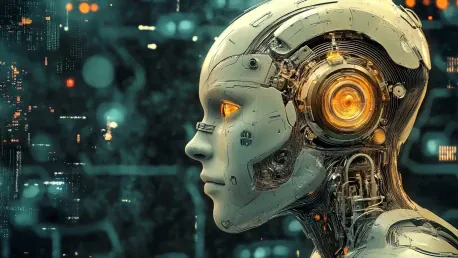The rapid advancement of artificial intelligence (AI) has revolutionized numerous domains, with generative AI tools like ChatGPT emerging as significant players since their inception in late 2022. Initially envisioned to transform various industries, ChatGPT has found its most widespread application in educational contexts, particularly for homework assistance among students. This burgeoning trend, while offering substantial benefits, poses ethical challenges that educators must grapple with to curb potential misuse and academic dishonesty.
Generative AI: A Game Changer in Education
Widespread Adoption of ChatGPT in Academic Assistance
Generative AI, particularly ChatGPT, has quickly become a go-to tool for students seeking help with their academic work. Leveraging the vast capabilities of AI, students utilize these tools to simplify complex subjects and gain comprehensive overviews of historical events, among other educational tasks. A detailed analysis by The Washington Post, drawing on data from WildChat, revealed that academic assistance accounts for 18% of all chatbot interactions. This statistic underscores the significant role of AI in modern educational landscapes, arguably becoming a cornerstone of students’ academic endeavors.
However, while ChatGPT’s educational applications appear promising, they present a dual-edged sword. Many educators worry that students may misuse these tools to bypass genuine learning, opting instead for AI-generated answers. This concern is not unfounded, as AI can competently produce text that mimics human writing, making it difficult for instructors to distinguish between a student’s authentic work and AI-generated content. Thus, while generative AI holds transformative educational potential, it simultaneously challenges educational integrity and authenticity.
The Potential for Academic Dishonesty
The use of ChatGPT and similar AI tools for homework assistance raises critical questions about academic integrity. On one hand, these technologies democratize access to information, helping students better understand intricate subjects and complete assignments more effectively. On the other hand, the convenience and sophistication of AI-generated content create a fertile ground for academic dishonesty. Students might be tempted to submit AI-produced work as their own, undermining the fundamental tenets of honest academic practice.
This burgeoning issue has prompted a response from both educators and AI developers. While teachers scramble to update their assessment methods and detection capabilities, companies like OpenAI grapple with ethical considerations. The Wall Street Journal reports that OpenAI has developed an internal tool capable of detecting AI-generated text. However, the tool remains unreleased due to fairness concerns, particularly for non-native English speakers. This pause reflects the broader challenge of balancing technological innovation with ethical safeguarding, ensuring that AI in education supports learning without encouraging unfair advantages or dishonesty.
Balancing Benefits and Ethical Safeguards
The Need for Thoughtful Integration
The integration of AI technologies like ChatGPT into academic settings must be approached with careful consideration of both their immense benefits and potential ethical pitfalls. AI has the potential to enrich education by providing personalized learning paths, offering assistance with difficult subjects, and making knowledge more accessible. However, these advantages must be weighed against the risks of misuse and the erosion of educational integrity. Thought leaders in education and technology advocate for a balanced approach, one that leverages AI’s capabilities while instituting robust measures to prevent academic dishonesty.
Engaging students in conversations about ethical AI use, implementing honor codes, and employing AI-detection tools responsibly can help mitigate potential negatives. Moreover, educators need continuous professional development to keep pace with AI’s evolving capabilities and the creative ways students might use (or misuse) them. By fostering a culture of integrity and critical thinking, schools can maximize the benefits of AI without compromising the educational values they uphold.
Navigating the Future with AI in Education
The swift evolution of artificial intelligence (AI) has brought about transformative changes across various fields, with generative AI tools like ChatGPT gaining prominence since their debut in late 2022. While initially poised to revolutionize diverse sectors, ChatGPT has predominantly found its niche in educational settings, particularly as a resource for students seeking homework assistance. This growing trend presents substantial benefits, such as personalized learning and accessible knowledge. However, it also introduces ethical dilemmas that educators must address to prevent misuse and academic dishonesty. As students turn increasingly to ChatGPT, the potential for cheating and undue reliance on AI for academic work raises concerns about the integrity of the educational process. Educators are tasked with finding a balance, leveraging the benefits of such technologies while implementing stringent measures to ensure that learning and assessment remain fair and meaningful. Thus, the integration of AI in education, while promising, necessitates careful consideration and a proactive approach to uphold academic standards and ethical norms.









